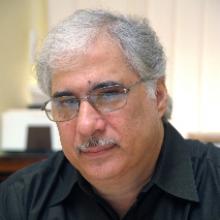The Road Travelled: 2001-2017
The idea to create a centre such as the ICTS was born in 2001, after the successful completion of the Strings 2001 conference at TIFR Mumbai and a visit to the Infosys Campus in Bangalore in February 2001, that happened at the insistence of Edward Witten who was keen to visit the ‘temples of modern India’. The former boosted our confidence based on our achievement in fundamental physics and the latter provided confidence that institutional infrastructure and management of the highest international quality is possible in India. This combination of the highest quality science within a modern state of the art campus, managed along modern management lines inspired the basic idea of the ICTS. What made ICTS unique in India is that it was to be an international science hub that would transform the ways of doing scientific research and advanced science education in India. I began by looking for private funds but in 2004 David Gross gave a new impetus to the creation of the ICTS by suggesting a way out of my fumbling efforts to find support from private sources.
The International Centre for Theoretical Sciences (ICTS) was approved by the TIFR Council in August 2007 to be a multi and interdisciplinary centre with 3 main goals: PROGRAMS that bring together physicists, astronomers, cosmologists, mathematicians, biologists, students and researchers from all over the world, under one roof, to work together to solve the most challenging questions posed by nature, to discover the underlying structures across the sciences and to strive for the unity of knowledge; In-house RESEARCH - by highest quality faculty in the theoretical sciences; SCIENCE OUTREACH that stimulate and harness the young minds of India and connects with members of the public who are interested in the latest developments of scientific research. To make sure that we were navigating ICTS well we constituted an International Advisory Board of eminent scientists who worked hard to scrutinise and guide the ICTS mission with exacting standards. The Centre also benefited from the strong support of CNR Rao, K. Kasturirangan, H.R. Krishnamurthy and K. VijayRaghavan.
The next task was to create the Centre i.e. begin the programs and discussion meetings, find the government resources and land to build the campus, work with the architect for an awesome design suitable for the ICTS mission, see through the execution of the architectural design, create a modern administrative support system, choose the research areas at ICTS and attract outstanding faculty within each! This complex task involved a huge collective effort by some members of TIFR (notably Avinash Dhar) the Indian science community, and the Govt of India.
During the past decade ICTS has achieved some measure of success in its three missions! Its programs have had a significant impact on Indian science; it is an international hub of science; its faculty has already made widely recognised contributions and its science outreach has become a fixture for science enthusiasts in Bangalore. Besides basic Govt support it is significant that ICTS has received generous support from the Airbus Corporate Foundation, the Simons Foundation, the Infosys Science Foundation and the Infosys Foundation. The ICTS campus was inaugurated on 20 June 2015 and in Rajesh Gopakumar it got a very capable new Director beginning August 2015.
The future: A successful institution like ICTS should grow in size and expand the scope of its activities. Its present areas of research should be augmented to include, exploring foundational questions about brain function and evolution, understanding of memory, learning and cognition, and AI models. In another vein progress in quantum computing will enable us to penetrate deep into the workings of the quantum world and provide a paradigm shift in computing. Further into the future ICTS should include experimental science and humanities and strive to be a university which integrates knowledge and human values. India needs many, many such institutions.
To go forward with our dreams ICTS will need the support of government, private foundations and all the people who appreciate `truth’ and care for an equitable future of humanity.
The detailed history will appear soon. Learn more at: Link
Founding Director (Aug 2007-July 2015)
Infosys Homi Bhabha Chair Professor, ICTS
Professor Emeritus, TIFR.


